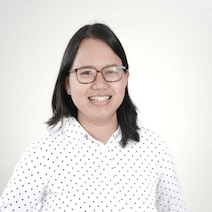SUMMARY
This is AI generated summarization, which may have errors. For context, always refer to the full article.
![[OPINION] Is the Philippines ready for its ‘graying’ population?](https://www.rappler.com/tachyon/r3-assets/612F469A6EA84F6BAE882D2B94A4B421/img/41B2857DE69E4C1397C2496B4AE1517D/is-the-philippines-ready-for-its-graying-population-sept-4-2019.jpg)

Soon, the Philippines is expected to be an aging population like Japan, Italy, or Finland, where at least 14% of the population are senior citizens. The Commission on Population and Development expects this to happen by 2030 or 2035. It has been suggested that Filipinos are leading longer lives partly because of breakthroughs in health sciences, technology, and advances in medical care. Is the Philippines ready for this demographic transition? How are we preparing for the inevitability of an aging society?
Within our own families and communities, we may not yet see or feel the implications of population aging. We may be more used to interacting with children and young people since they form a significant bulk of the population. Further, we may not see as many old people yet in our daily lives as compared to countries with a bigger aging population. For example, the old in the Philippines are currently an estimated 8.4% of the total population in 2019, while Japan has quadruple that proportion.
Beyond population counts, however, the dearth of elderly people in public spaces is most likely symptomatic of a larger yet invisible issue of a lack of representation. The Department of Social Welfare and Development manifested earlier this year its support for the creation of a commission for senior citizens to ensure that the needs of the elderly are represented in policies and affirmative action.
By the time the Philippines becomes an aging society, more elderly people will be needing support from the government, and not just from their families. More lolos and lolas will be needing affordable and accessible medicines, routine checkups, and additional support from the community to ensure their well-being.
As Filipinos, many believe that it is both our duty and obligation to care for our parents when they are no longer able to take care of themselves. Rising health care costs, out-of-pocket expenses for medicines, and lack of access to social services for the elderly have also made this the only option for many families. However, Filipino families that opt to shoulder unpaid care tasks, whether out of choice or necessity, would necessarily have to make sacrifices in terms of time, finances, and even family well-being, more so where the elderly family member is suffering from chronic illness or disability. In some instances, the elderly also take on unpaid care tasks such as household chores or childcare.
Imagine if we can take care of the elderly with sufficient systems and structures in place. On an individual level, we can also do smaller but equally relevant shifts, such as strengthening our mindset of care towards the elderly in our own circles of influence. Closest to home are our parents, who now, or in the near future, will be part of the aged population. Ensuring that we honor and respect them can make a big difference. Knowing that all people, whether our parents or not, have the right to be treated well can help us develop more compassion towards all people and an interest in issues that may not appear relevant to us at the moment, but will confront us as we grow older.
Indeed, it is timely to have conversations to increase awareness of issues of the elderly and act on ensuring a stable fiscal capacity to fund pension systems with gender equity, a robust health care system that encourages healthy aging, strong networks and communities of support, and creative strategies of providing more opportunities in employment or education.
It is time to reflect on whether we are keeping health services or medical treatment accessible and affordable. The Department of Health is currently capping retail prices for medicines to address the urgent problem of the Philippines having the highest medicine prices in Asia.
These much needed policies reflect the urgency of fundamental reforms in social systems and structures that can be sustained by an expanding and “graying” population. We must confront these demographic shifts head-on. – Rappler.com
Sheena Kristine Cases is the senior officer for knowledge, accountability, and learning of Oxfam in the Philippines. Oxfam is an international confederation of 19 organizations working together with partners and local communities in more than 90 countries.
Add a comment
How does this make you feel?
There are no comments yet. Add your comment to start the conversation.